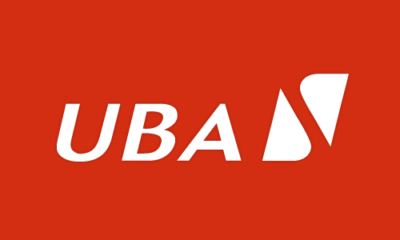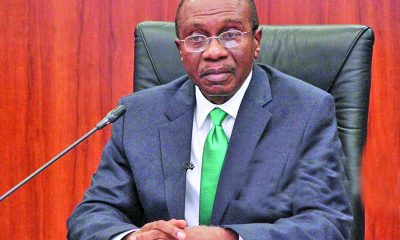Business
UBA consolidates gains, gross earnings rise by 110%
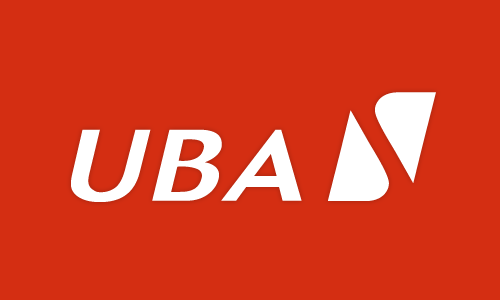
UBA consolidates gains, gross earnings rise by 110%
United Bank for Africa (UBA) Plc recorded impressive growth across all major performance indicators in the first three months of the year with its gross earnings indicating a rise by 110 per cent.
An interim report of the bank for the first quarter ended March 31, 2024 released at the Nigerian Exchange (NGX) also showed that its pre and post profits grew by 155 per cent and 165 per cent respectively.
Its gross earnings specifically doubled from N271.1 billion in first quarter 2023 to N570.2 billion in first quarter 2024.
The bank’s top-line performance was driven by strong growth in the core banking operations with interest income rising by 130 per cent to N440.7 billion.
Its operating income doubled by 115 per cent from N175.7 billion to N378.59 billion.
Its profit before tax jumped by 155 per cent from N61.7 billion in first quarter 2023 to N156.34 billion in first quarter 2024.
Profit after tax rose by 165 per cent from N53.5 billion to N142.5 billion.
The balance sheet of the bank further expanded within the three months as total assets grew by 23 per cent to N25.4 trillion in March 2024.
Customer deposits also rose by 23 per cent to close the period at N18.4 trillion, largely due to growth in current accounts and savings accounts.
UBA’s Group Managing Director, Oliver Alawuba, said the Group delivered a strong first quarter performance, building on the solid momentum of 2023, as well as the ongoing execution of its long-held strategy of customer focus, geographic diversification, and effective risk management and governance.
He said, “Our record Q1 profit before tax was delivered with triple-digit gross earnings growth, supported by very strong interest and non-interest income.
“Fees and Commissions rose by 118% year-on-year on the back of improved efficiencies and continued digital adoption.
“This has helped drive improvement in efficiency and customer satisfaction, with the Group’s cost-to-income ratio held at 57.8%.”
Also speaking on the performance, UBA’s Executive Director, Finance and Risk, Ugo Nwaghodoh, said, “Our first quarter results highlight our relentless customer focus and the strength of UBA’s geographic and product diversification, with good performance across all our regions.
“We continue to differentiate ourselves across all key financial metrics, with a keen focus on high-quality risk adjusted revenues and cost discipline, while maintaining very sound asset quality.”
Business
Over 60% firms, individuals not paying tax, says LCCI president, warns against overtaxing
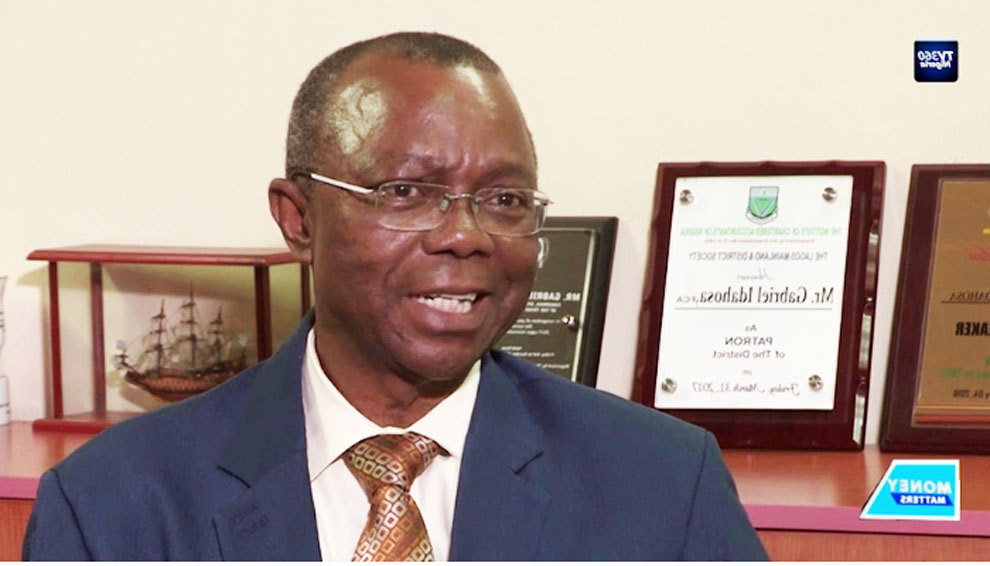
Over 60% firms, individuals not paying tax, says LCCI president, warns against overtaxing
President and Chairman of Council, Lagos Chamber of Commerce and Industry LCCI, Gabriel Idahosa, has cautioned against the multiplicity of taxes by the Federal Government, saying the development was not good for the economy. Speaking on an Arise television show monitored in Abuja, Idahosa said it was not possible to begin to raise money for every little thing in government.
He said the federal government should instead increase the capacity of the Federal Inland Revenue Service FIRS to collect taxes, noting that not up to 40 percent of taxable persons and organizations were taxed. According to him, the countries that are most efficient in tax collection are the countries that have the minimum number of taxes.
His words: “It is not really possible to begin to raise money for every little thing in government. To levy for cyber security, industrial training, insurance, levy for police trust fund and others, the whole approach in recent times of trying to put levy on everything is simply not the way to manage public finance in any country.
“The business of raising revenue for government is assigned to a specific organization in government which is the Federal Inland Revenue Service FIRS in the case of Nigeria. It is the business of the FIRS to get revenue for all the services of the Federal Government of Nigeria. The countries that are most efficient in tax collection are the countries that have the minimum number of taxes.
READ ALSO:
- No worker can survive on less than N100,000 minimum wage – Shehu Sani
- DSS manhandles two workers in N’Assembly
- 11 pipeline vandals arrested in Benue
It has been established during the time of the Taiwo Oyedele Tax Reform Commission that some of the levies and taxes that you create does not translate into significant increase in revenue and in any country, the agencies in charge of activities like these, whether it is high level intelligence or security, are funded from the budget of the country and the way they are funded usually is not a matter for public conversation. Nobody exposes the way the intelligence agencies of countries are funded.
“The technical issue of whether the Act was correct or not is minor. The big issue is should government of Nigeria encourage all agencies to be coming with all manner of levies for every single thing. You want something on health and you have a levy, in security you have a levy etc. That should be the more important conversation, that there should be a concerted effort to increase the capacity of the FIRS to do the job of revenue collection.
As we speak, not up to 40 percent of taxable persons are taxed. The first thing to do is to bring all taxable people into the net and then tax them accordingly. You don’t even need to raise the tax. More than 60 percent of taxable organizations and individuals are not paying tax. That should be the focus. The first level of taxation is identity. Identify economic actors at all levels right to the remotest villages.
The capacity of the FIRS to reach tax payers across the country was not built over time but with the dwindling of oil revenue, that capacity has been increased. You are beginning to see FIRS offices in several parts of the urban areas and state capitals but more than 60 percent of Nigerian businesses are not in the urban areas or state capitals. Any country that wants to collect tax, has to go very granular. Businesses that exist in every village must be taxed and that is where the FIRS is moving slowly but steadily”, he stated.
Over 60% firms, individuals not paying tax, says LCCI president, warns against overtaxing
Aviation
FAAN begins sale of e-tags at airports

FAAN begins sale of e-tags at airports
The Federal Airport Authority of Nigeria (FAAN) on Friday commenced the sale of electronic tags (e-tags) at airports.
The initiative, it said in a statement, was in line with the presidential directive that mandating the use of e-tags for accessing the nation’s federal airports.
“Following the presidential directive that all citizens are mandated to pay for e-tags at all the 24 federal airports across the country, we wish to inform the general public that the e-tags are available for sale from Friday, 17th May, 2024 at the following locations,” FAAN said.
“Lagos: Murtala Muhammed International Airport Lagos, Terminal 1, 5th Floor) Office of HOD Commercial. Contact: 08033713796 or 08023546030.
“Abuja: Nnamdi Azikiwe International Airport, HOD Commercial Office (General Aviation Terminal) Contact: 08034633527 or 08137561615.”
FAAN however said there would be an option to pay in cash at the access gates for motorists without e-tags.
On May 14, Minister of Aviation and Aerospace Development, Festus Keyamo, announced that everyone, including the President and Vice President, would pay tolls at the airports.
Keyamo said the government was losing over 82 per cent of the revenue it should have earned from the access fee.
Business
Your pension funds safe, won’t be accessed illegally, FG tells workers
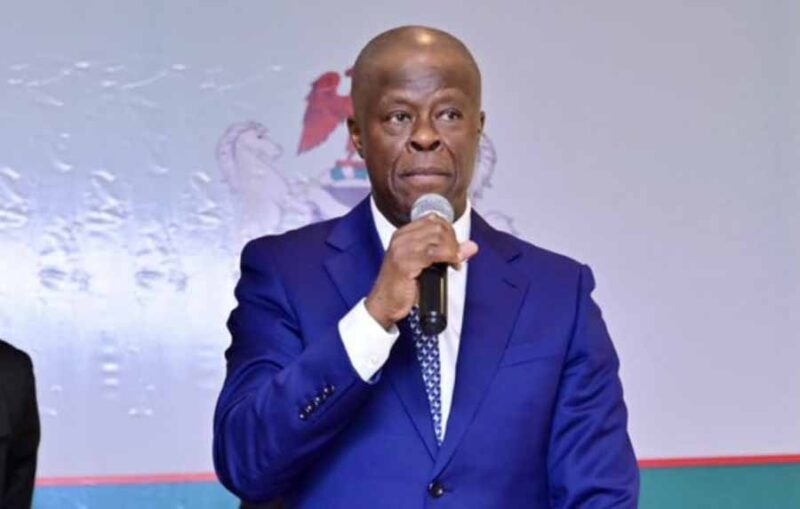
Your pension funds safe, won’t be accessed illegally, FG tells workers
Minister of Finance and Coordinating Minister of the Economy, Mr. Wale Edun, says the Federal Government has no plans of illegally accessing the N20 trillion pension funds for infrastructure development.
He said noone should entertain any fear over the safety of the contributions of workers that make up the pension funds.
Edun had earlier said the spoken on a move to use the pension funds as part of the government’s efforts to bridge Nigeria’s estimated 20 million housing deficit, and provide massive housing and mortgage loans at 12 per cent interest rates, with 25-year repayment plans.
The minister’s comments had elicited serious reactions from notable groups and Nigerians, including the organised labour and a former Vice President, Alhaji Atiku Abubakar, who advised the government to suspend the move.
Atiku said the move was potentially disastrous for retired Nigerians dependent on their pensions.
But in a statement personally issued on Thursday, Edun said the stories making the rounds that the government planned to illegally access the savings and pension contributions of workers were false.
He stated that the pension industry was guided by rules, adding that the government would be strictly guided by extant rules in accessing the pension funds of workers.
The minister stressed that government would not go outside the stipulated limitations on what the funds could be invested in.
The statement read in partu, “It has come to my notice that there are stories making the rounds that the Federal Government plans to illegally access the hard-earned savings and pension contributions of workers. Nothing could be farther from the truth.
“The pension industry, like most the financial industries, is highly regulated. There are rules. There are limitations about what pension money can be invested in and what it cannot be invested in.
“The Federal Government has no intention whatsoever to go beyond those limitations and go outside those bounds, which are there to safeguard the pensions of workers.
“What was announced to the Federal Executive Council was that there was an ongoing initiative drawing in all the major stakeholders in the long-term saving industry, those that handle funds that are available over a long period to see how, within the regulations and the laws, these funds could be used maximally to drive investment in key growth areas, including infrastructure, housing, and, of course, to find a way to provide Nigerians with affordable mortgages.
“Within this context, there is no attempt, nor is it being considered, to offer unsafe investments for pension funds or even insurance funds or any investment funds.
“No attempt whatsoever to increase the risk. No attempt whatsoever to lower the returns that would otherwise be earned.”
-

 News2 days ago
News2 days agoUsing pre-registered SIM card may land you in jail, NCC warns
-

 metro2 days ago
metro2 days agoFire guts new NNPCL tank farm in Lagos
-

 News2 days ago
News2 days agoPolice grill Osun monarch, Ataoja of Osogbo, over petition
-

 metro1 day ago
metro1 day agoUpdated: Many injured, shops destroyed in truck, BRT bus crash on Lagos-Ibadan Expressway (PHOTOS)
-

 Sports10 hours ago
Sports10 hours agoFlamingos thrash Burkinabe Girls 6-0 in U-17 World Cup qualifier
-

 Education11 hours ago
Education11 hours agoWigwe varsity becomes most expensive Nigerian university, unseats Nile, Baze
-

 metro1 day ago
metro1 day agoBreaking: Women protest against return of armed Okuama youths (+ Photos)
-

 News1 day ago
News1 day agoNigeria will stop fuel importation by June – Dangote

